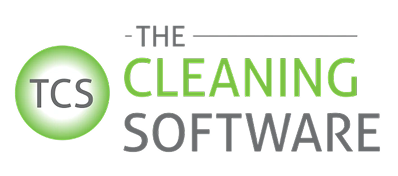If you’re running a cleaning business in 2025, you know how much juggling is involved—scheduling appointments, keeping track of cleaners, chasing down payments, and making sure everyone’s on the same page. You simply need a tool that automates the tedium and keeps everything organized. The right software takes a huge load off your shoulders and keeps you sane.
There are tons of options out there, each with its own perks and drawbacks, so it’s worth taking the time to explore before you commit.
Here are the top favorites among cleaning businesses:
- The Cleaning Software (TCS) for cleaning companies across the board
- Housecall Pro for all-around field service
- Jobber for general service businesses
- GorillaDesk for a pest control and cleaning mix
- ServiceM8 for small teams needing simplicity
- Workiz for dispatch and call management
- mHelpDesk for enterprise field operations
- Service Fusion for scaling mid-sized businesses
- Connecteam for employee communication and HR
- Method for QuickBooks integration
No single tool will be perfect for everyone and the best fit will depend on your priorities. In this article, we’ll help you choose the right platform for your company by looking at scalability, ease of use, core features, compatibility with the cleaning industry, and overall value for money.
The best cleaning service software at a glance
| Tool | Pros | Cons | Pricing | Best for |
| The Cleaning Software |
|
Just for cleaning companies (not for general application) |
|
Cleaning companies that want an all-in-one platform with built-in payroll, invoicing, client reminders, and reporting, designed specifically for cleaning business workflows and able to scale with team size. |
| Housecall Pro |
|
Higher prices for advanced features, not cleaning service-specific |
|
General home service professionals |
| Jobber |
|
Cleaning-specific workflows require customization, higher-tier plans needed for extras |
|
Multi-trade service teams |
| Gorilla Desk |
|
Designed primarily for pest control companies |
|
Niche trades like pest control |
| ServiceM8 |
|
Limited scalability, best for small teams |
|
Small service teams |
| Workiz |
|
Can be complex to set up, not specific to the cleaning industry |
|
High-volume service operations |
| mHelpDesk |
|
Heavier back-office focus, mobile app less streamlined |
|
Office-heavy service operations |
| Service Fusion |
|
Bigger system with steeper learning curve |
|
Large service companies |
| Connecteam |
|
Not purpose-built for cleaning workflows, more generic |
|
Deskless teams across industries |
| Method |
|
CRM-first tool, requires tailoring for cleaning businesses |
|
Accounting-driven businesses |
The Cleaning Software (TCS)
The Cleaning Software (TCS) is a platform designed exclusively for cleaning companies, built by veteran cleaning business owners. Since it’s one of the rare industry-specific options, it includes features you won’t typically find in generic field service software.
Pros
Here are some of the benefits of The Cleaning Software:
-
Built for cleaning businesses
Every feature is aligned with cleaning service operations. For example, TCS has an enhanced job entry form that auto-fetches home square footage for accurate pricing and time estimates. You can set up custom service checklists and even define rotation schedules for periodic deep cleans.
-
Payroll automation included as standard
While most other platforms make you connect to separate payroll services like Gusto or export everything to QuickBooks, TCS handles payroll directly. Your time tracking, pay adjustments, and actual payouts all happen in the same place without the need for any extra tools and multiple subscriptions.
-
Automated client reminders built in
Following up with clients about upcoming appointments takes forever if you’re doing it manually, but The Cleaning Software handles it automatically. You get text and email reminders without paying extra for add-ons or having to contact every customer yourself.
-
Cleaner-focused mobile app
The app focuses on what cleaners need in practice: job schedules, client details, special requests, and task lists. It’s not loaded down with features meant for contractors, repair services, and other unrelated industries, so your team can jump right in without confusion.
-
Industry-specific reporting and dashboards
The reporting focuses on what cleaning company owners need to see: completed jobs, payroll changes, and customer activity. You won’t get buried in useless metrics that broader service platforms typically include. You can give all of this a try with a comprehensive demo.
-
You get everything without having to pay for add-ons
TCS doesn’t play the game where they hide important stuff behind expensive plans. Things like automatic payroll, customer reminders, and cleaning-focused reports come with every plan from the start. You won’t have to keep upgrading just to get basic features that should have been included anyway.
Cons
TCS does have some limitations to consider. Here’s what might not be ideal for some business owners:
-
Limited recognition
Since TCS is specialized and relatively new, you won’t find tons of online discussions or independent reviews like you would for established platforms. That said, you can check out some strong case studies that showcase how real cleaning businesses use the software, which will give you a clearer picture of how it performs in practice.
-
Not made for multi-trade service companies
Because TCS was built with cleaning businesses in mind, it doesn’t cover unrelated service fields like plumbing, HVAC, or pest control. For businesses outside the cleaning industry, this can mean needing separate systems or workarounds to make this software work.
Housecall Pro
Housecall Pro is one of the bigger names in field service software, covering everything from HVAC and plumbing to electrical and cleaning work.
Pros
Here’s what works well about Housecall Pro:
-
Easy online booking
Your clients can book jobs directly through a simple online form instead of having to call. This cuts down on phone time for you and makes it easy for new customers to get started. The booking system also captures customer details and service preferences upfront, so your team shows up prepared.
-
Automated invoicing and payments
When a job wraps up, invoices get created automatically, and customers can pay online right away. You don’t have to chase people down for payment or worry about things falling through the cracks.
-
Text message communication
The system sends automatic text updates letting customers know when your team is heading over or how the job is going. This prevents a lot of confusion and keeps everyone on the same page.
-
Wide integration options
Housecall Pro connects with QuickBooks, Zapier, Mailchimp, and other platforms you might already be using. You can extend what it does and tie it into your existing setup pretty easily.
Cons
While these strengths make Housecall Pro appealing, there are also limitations that businesses need to consider before committing. Below are some of the more common drawbacks:
-
Advanced tools cost extra
Basic plans are somewhat limited. Features like advanced reporting or better automation are locked behind higher-priced tiers. If you start small, you’ll probably need to upgrade sooner than you’d like. Custom forms, advanced scheduling, and detailed analytics all require moving up to more expensive plans.
-
Not tailored to cleaning workflows
Housecall Pro is designed to serve a broad range of service industries, from HVAC to plumbing to cleaning. While it handles the basics like scheduling and invoicing just fine, it doesn’t have specialized cleaning features like rotation-based scheduling or built-in supply tracking. This means cleaning businesses might need to adjust how they work or add extra tools to fill those gaps.
Jobber
Jobber is a widely used field service management platform built to support small and mid-sized service businesses.
Pros
Let’s take a look at some of the notable benefits of using Jobber:
-
Easy drag-and-drop scheduling
The calendar system lets you drag jobs around to reassign them or handle last-minute changes without much hassle. It’s pretty intuitive, so you spend less time figuring out the software and more time getting work done.
-
Customer portal that builds trust
Your clients get access to a secure online portal where they can check quotes, approve work, and pay their bills. This makes you look more professional and gives customers the transparency they want.
-
Fast quotes that turn into jobs
You can put together detailed quotes and send them straight to clients through the system. Once they approve, those quotes automatically become scheduled jobs, which saves you from re-entering all that information.
-
Reports that help you make informed decisions
Jobber shows you revenue numbers, how productive your team is, and customer history. These charts give you real insights for making business decisions and spotting growth opportunities.
Cons
Jobber works well for a lot of service businesses, but it’s not perfect for everyone. Here are some things to think about:
-
Takes some tweaking for specialized work
Since Jobber tries to work for everyone from landscapers to electricians, it might not fit your exact workflow right out of the box. If you’re in a specialized business like cleaning, you’ll probably need to spend quite a bit of time adjusting things to work the way you want.
-
The good stuff costs extra
Features like automated customer reminders and detailed reporting are locked behind the more expensive plans. As your business grows and you begin to need more functionality, your monthly bill can climb pretty fast.
GorillaDesk
GorillaDesk originally focused on pest control companies but has branched out to work with other service businesses, too.
Pros
Here’s what it does well:
-
Simple scheduling that’s easy to learn
The calendar is straightforward and doesn’t overcomplicate job scheduling. Your staff can figure it out quickly, so you won’t spend weeks training people on how to use it.
-
Handles repeat customers well
If you’ve got clients who need regular service (weekly, monthly, or another recurring schedule), GorillaDesk keeps track of all that automatically. You’re less likely to miss appointments or leave customers wondering when you’re coming back.
-
Built-in billing keeps things simple
You can create and send invoices right from the platform instead of juggling separate billing software. For smaller operations, this saves you from paying for yet another tool.
-
Really knows pest control
The software has features like chemical tracking and compliance reports that pest control companies actually need. If that’s your business, these tools help you stay on the right side of regulations without extra hassle.
Cons
GorillaDesk works well for smaller service businesses, but it’s not going to be perfect for everyone. Here are some things that might not work:
-
Still pretty pest control-focused
Even though it claims to work for other trades, a lot of the features were clearly built with pest control in mind. If you’re running a cleaning business, you might find yourself working around tools that don’t really apply to what you do.
-
Hits a ceiling as you grow
GorillaDesk handles small to medium teams just fine, but it doesn’t scale up well for bigger operations. If you’re planning to expand significantly, you’ll probably outgrow it and need to switch to something else down the road.
ServiceM8
ServiceM8 is built around mobile use and works well for smaller businesses that need to keep their field teams connected.
Pros
Here’s where ServiceM8 shines.
-
Easy job assignment
You can drag and drop jobs to assign them, and your team sees the updates right away on their phones. This keeps everyone on the same page and prevents jobs from falling through the cracks.
-
Checklists that keep work consistent
You can set up custom checklists that walk your staff through each job step by step. This helps maintain quality and makes sure nothing gets missed, especially when you’re training new people.
-
Actually designed for phones
The whole software is built around mobile use, so your team can easily clock in, update job progress, and communicate with the office while they’re out in the field. For smaller teams that are always on the move, this works great.
-
Won’t break the bank to get started
ServiceM8 has pretty affordable starter plans, which is great if you’re just getting your business off the ground or working with a tight budget. You can start digitizing your operations without a huge upfront cost.
Cons
ServiceM8 is solid for small businesses and easy on the wallet, but it does have some limitations:
-
Doesn’t grow with bigger companies
This platform is designed for small teams and doesn’t have the advanced features that larger businesses need. If you’re planning to scale up quickly, you’ll probably hit a wall and need to find something more robust.
-
Missing important back-office stuff
Things like payroll automation or detailed reporting just aren’t there. If you want to handle everything from scheduling to payroll in one place, ServiceM8 won’t cut it, so you’ll need to find other tools to fill those gaps.
Workiz
Workiz is built for service businesses that handle a lot of volume and need more advanced features to keep everything organized.
Pros
Here’s what it does well:
-
Solid customer management
Workiz keeps detailed records of every customer—their history, all your conversations, job notes, etc. When you’re managing hundreds of clients, having that information in one place makes a big difference.
-
Smart job dispatching
You can assign jobs based on where your technicians are and when they’re available, plus track them with GPS. This cuts down on drive time and helps you coordinate multiple crews without losing your mind.
-
Handles payments directly
Workiz lets you send invoices and take payments right in the platform, which makes day-to-day transactions simple and efficient. Even though it still relies on QuickBooks in the background for full accounting and record-keeping, the fact that payments can be processed directly through the app is a big plus for teams who want less back-and-forth when finishing jobs.
-
Comprehensive reporting
Workiz gives you detailed breakdowns of everything, including team productivity, job profitability, workflow bottlenecks, etc. The level of detail is deeper than most platforms, so you can really drill down into what’s working and what’s costing you money.
Cons
Workiz packs a lot of features, but that power comes with some trade-offs. Here’s what might give you pause:
-
Takes time to get everything set up
This software isn’t something you can just plug in and start using immediately. Setting everything up properly requires time to configure workflows, integrate QuickBooks, and train your team on how to use all the different modules. For small or fast-moving businesses that just want something simple, this onboarding process can feel overwhelming and unnecessary.
-
Built for everyone, not just you
Workiz is designed to cover many types of service industries, from locksmiths through junk removal to cleaning. This means you’ll be paying for tools that aren’t always relevant to your cleaning business, like features aimed at HVAC or appliance repair. Since it’s not tailored specifically to the cleaning industry, you may find yourself adapting your operations to the software instead of having the software match the way your team already works.
mHelpDesk
mHelpDesk focuses on streamlining your office operations and keeping your finances organized.
Pros
Here’s what stands out:
-
Detailed work orders
You can document jobs thoroughly with notes, materials lists, and custom fields, so your technicians know exactly what they’re walking into. This cuts down on confusion and back-and-forth calls between the office and field crews.
-
Syncs perfectly with QuickBooks
This is probably mHelpDesk’s biggest selling point. It connects directly with QuickBooks and keeps your financial data in sync automatically. You’re not doing double data entry or worrying about accounting mistakes.
-
Invoices go out automatically
When jobs get marked complete, invoices get generated right away instead of sitting in a pile waiting for someone to process them. For busy teams handling lots of jobs, this can really improve your cash flow.
-
Keeps detailed customer records
The built-in CRM stores everything about each client, including job history, past conversations, preferences, etc. This helps you give more personalized service and makes it easier to book repeat work or suggest additional services.
Cons
mHelpDesk is solid for office and financial management, but it’s not perfect for everyone. Here are some things that might not work for you.
-
Less intuitive for field staff
The mobile app is more complex than simpler field-focused tools, which can slow down your technicians. If your team needs to quickly check job details while they’re on-site, navigating a detailed interface can feel like a hassle instead of a help. Most crews prefer lighter, tap-and-go apps.
-
Back-office heavy
The platform puts a lot of emphasis on administrative stuff like invoicing, estimates, and client management, sometimes at the expense of making things easy for field teams. While this is great for office staff, your cleaners might feel like the software wasn’t built with them in mind.
Service Fusion
Service Fusion is built for larger companies that need more sophisticated tools to manage their robust operations.
Pros
Here’s what makes it stand out:
-
Smart scheduling with GPS tracking
The platform combines your scheduling with GPS-enabled dispatch, so you can see where all your teams are in real-time. This helps you coordinate jobs better, reduce drive time, and spot inefficiencies before they become expensive problems. For larger operations juggling multiple crews, this visibility is really valuable.
-
Everything in one place
Service Fusion handles estimates, invoicing, reporting, and client communication all within the same platform. You’re not switching between different tools or trying to keep everything synced up manually. This centralization saves time and reduces the chance of things falling through the cracks.
-
More features as you upgrade
Higher-tier plans unlock additional tools like job photo uploads, inventory management, and custom document creation. This means you can start with the basics and add more sophisticated features as your business grows, instead of outgrowing the platform entirely.
-
No per-user pricing
Every plan includes unlimited users, which makes budgeting easier and supports growth. You won’t get hit with surprise costs when you hire more people, and larger teams can use the full platform without worrying about seat limits.
Cons
Service Fusion is a reliable option for some business owners, but that comes with some significant costs and complexity. Here’s what might not work for everyone:
-
Very expensive to get started
Even the basic plan costs significantly more per month than all other alternatives. If you’re a smaller business or just getting started, the price tag might be hard to justify, especially when other tools could handle your current needs.
-
Setup fees on top of monthly costs
Every plan comes with a one-time onboarding fee that can run from a few hundred to several hundred dollars. Combined with the higher monthly costs, you’re looking at a substantial upfront investment just to get the system running.
Method
Method is primarily a CRM platform that integrates smoothly with QuickBooks, which makes it an appealing solution for business owners who already heavily rely on QuickBooks for accounting.
Pros
Here are some of Method’s advantages:
-
Highly customizable CRM
Method lets you organize client records, booking processes and job workflows exactly how you want them. This flexibility is great if your business has unique needs or if you want to recreate your existing systems inside the platform.
-
Advanced QuickBooks integration
This is Method’s biggest selling point and the reason why some business owners choose it. Invoices, payments and customer records all sync perfectly with QuickBooks, so you won’t have to worry about duplicate entries or errors.
-
Time-saving automation
Method lets you automate mundane tasks like sending invoices, following up on overdue payments or assigning jobs to your team. The automation can significantly cut down on manual admin work.
-
Efficient lead capturing
Their software supports web forms that capture potential client information directly from your website and add it to your system automatically. That means fewer missed opportunities and quicker follow-ups.
Cons
This software also comes with some significant trade-offs that cleaning businesses should keep in mind. Let’s take a look:
-
CRM first, cleaning second
Method is more of a general CRM, not a tool built specifically for cleaning businesses. This means that things like recurring visits, job-specific checklists, or cleaner payroll have to be built from scratch. While the system can handle this with enough customization, it won’t be ready to use immediately like cleaning-focused platforms are.
-
Takes time to learn and set up
Since Method is very customizable, the setup process won’t be as straightforward as with some simpler alternatives. Getting it to work smoothly for your cleaning business workflows can take quite a bit of time and training. This learning curve could be frustrating for business owners who want something that does the job right away.
Connecteam
Connecteam works as an all-in-one employee management and communication platform, which could make it an attractive choice for businesses that have lots of field workers across different industries.
Pros
Here’s what stands out about Connecteam:
-
Easy employee scheduling
You can create and share schedules in just a few clicks and instantly let your staff know about any changes, so no one gets confused. Since everything related to scheduling is in one app, your team will always know where to be and when.
-
Built-in time-tracking
Your employees can clock in and out from their phones and you can even double-check the locations with GPS verification. This can help you avoid miscommunication about how many hours someone worked and make payroll more accurate.
-
Team communication hub
Instead of juggling multiple apps, you get one spot for all your team communication. You can share announcements, run group chats, and get new hires up to speed more easily.
-
Workforce management tools
Connecteam also handles some HR tasks like onboarding new hires, storing digital documents and managing tasks. These features help managers keep everything organized in one spot.
Cons
On the other hand, Connecteam also has some limitations that you might want to consider before investing in it:
-
Not built for cleaning workflows
Connecteam is a general tool, not something designed specifically for cleaning businesses, the way The Cleaning Software is. Cleaning companies often end up having to do a lot of workarounds or adding separate tools for these industry-specific needs, which defeats the purpose of having everything in one platform.
-
No automated mileage tracking
When your team is driving between jobs all day, keeping track of mileage becomes very important, but with Connecteam, everyone has to log these miles manually, which creates mistakes and piles on extra admin work. If you’re paying mileage reimbursements or factoring travel into payroll, this gets old fast and you’ll likely wish you just had a software that could do this automatically.
How to choose the right cleaning business software
Picking the right software comes down to evaluating multiple features, like whether it’s made for your industry, how it integrates payments, invoicing, and payroll, its scheduling and client tracking features, its ease of use, reporting options, and price. Here’s what really matters when you’re comparing options:
-
Industry-specific vs. general platforms
Platforms like Housecall Pro and Workiz try to work for everyone—HVAC companies, plumbers, locksmiths, you name it. That flexibility sounds good, but it often means cleaning businesses end up bending their processes to fit the software instead of the other way around. The Cleaning Software was built specifically for cleaning companies, so things like rotation schedules, cleaning-specific checklists, and field apps that make sense for cleaners are already there, without any workarounds needed.
-
Billing and payment handling
A lot of popular platforms lean on QuickBooks for invoicing and payments. Workiz and mHelpDesk both connect with QuickBooks, which works fine if you’re already using it, but you’ll still be juggling two different systems. It’s best if your software keeps everything in one place. For instance, with The Cleaning Software, invoicing and payments happen right in the platform with faster cash flow and fewer syncing headaches.
-
Payroll management
This is where most service software falls short. Jobber, Housecall Pro, and others might track hours, but then you have to export data to separate payroll systems like Gusto. The Cleaning Software actually handles payroll automation right in the platform. Hours, pay adjustments, and payouts are all in the same system you use for scheduling jobs, so nothing gets lost in translation.
-
Scheduling and client communication
Recurring jobs are huge for cleaning companies, but not every platform handles them well. GorillaDesk and ServiceM8 can do scheduling, but they were built for pest control or general field service, so cleaning-specific cycles take extra work to set up. The Cleaning Software was designed around cleaning workflows, so recurring visits and deep-clean rotations just work. Plus, automated client reminders are already included in the most basic plan, not stuck behind expensive upgrade tiers like with other platforms.
-
Mobile experience for field teams
Your cleaning crews need something simple that works. ServiceM8 is mobile-first, but it’s pretty basic and might not cut it as you grow. Workiz has tons of features, but that can make the mobile app feel overwhelming when you just need to check today’s jobs. The Cleaning Software focuses on what cleaners actually need: schedules, client notes, special requests, and checklists. Random features don’t clutter things up, so your team can easily figure it out.
-
Reporting and business insights
Every platform talks about insights, but a lot of reporting isn’t useful for cleaning businesses. Jobber and Workiz give you tons of data across different industries, but much of it doesn’t apply to you. The Cleaning Software focuses on cleaning-specific metrics like completed jobs, payroll changes, and customer activity patterns. You spend time looking at numbers that actually help you run your business instead of sorting through irrelevant data.
-
Pricing structure and feature access
This is where the differences get expensive. With software like Jobber or Service Fusion, the features you need the most like automated reminders, good reporting, or photo uploads are often locked behind higher-priced plans. As you grow your business, you end up paying for upgrades just to get basic functionality. The Cleaning Software includes everything from the start. Pricing only goes up based on team size, so while bigger teams pay more, nobody gets stuck paying extra just to access essential tools.
Take control of your cleaning business today
Every day you spend juggling software that wasn’t built for your type of work is another day wasted. Whether it’s chasing down payments across multiple systems, fighting with integrations that never quite sync, or wasting hours building workarounds for general service workflows, the stress only grows. It’s easy to feel like the software is running you, not the other way around.
But that cycle doesn’t have to continue. Modern cleaning software can streamline scheduling, automate reminders, and handle payroll without add-ons or upgrades. Imagine logging in and seeing everything connected—your team’s hours, your client’s schedules, your invoices, even payouts—all without needing three or four separate apps. That’s the relief that comes from switching to something truly built for your business.
The Cleaning Software (TCS) was created by a cleaning business owner who faced those same struggles and decided enough was enough. It brings payroll, invoicing, reporting, and client communication into one platform—no integrations, no hidden tiers, no chasing QuickBooks exports. Instead of patching tools together, you get a system designed to work as hard as you do. Don’t wait for the overwhelm to pile up. Book a TCS demo today and see how smooth running your business can be!
Stay up to date with the latest marketing news, resources, and guides.




